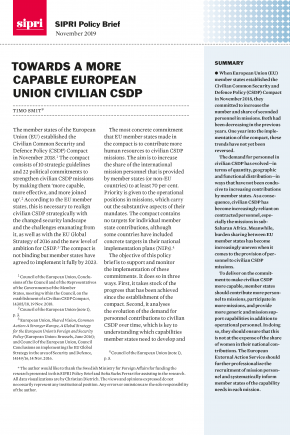Towards a More Capable European Union Civilian CSDP
When European Union (EU) member states established the Civilian Common Security and Defence Policy (CSDP) Compact in November 2018, they committed to increasing the number and share of seconded personnel in missions. Both had been decreasing in the previous years. One year into the implementation of the compact, these trends have not yet been reversed.
The demand for personnel in civilian CSDP has evolved—in terms of quantity, geographic and functional distribution—in ways that have not been conducive to increasing contributions by member states. As a consequence, civilian CSDP has become increasingly reliant on contracted personnel, especially the missions in sub-Saharan Africa. Meanwhile, burden sharing between EU member states has become increasingly uneven when it comes to the provision of personnel to missions.
To deliver on the commitment to make civilian CSDP more capable, member states should contribute more personnel to missions, participate in more missions, and provide more generic and mission support capabilities in addition to more operational personnel. In doing so, they should ensure that this is not at the expense of the share of women in their national contributions. The European External Action Service should further professionalize the recruitment of mission personnel and systematically inform member states of the capability needs in each mission.

